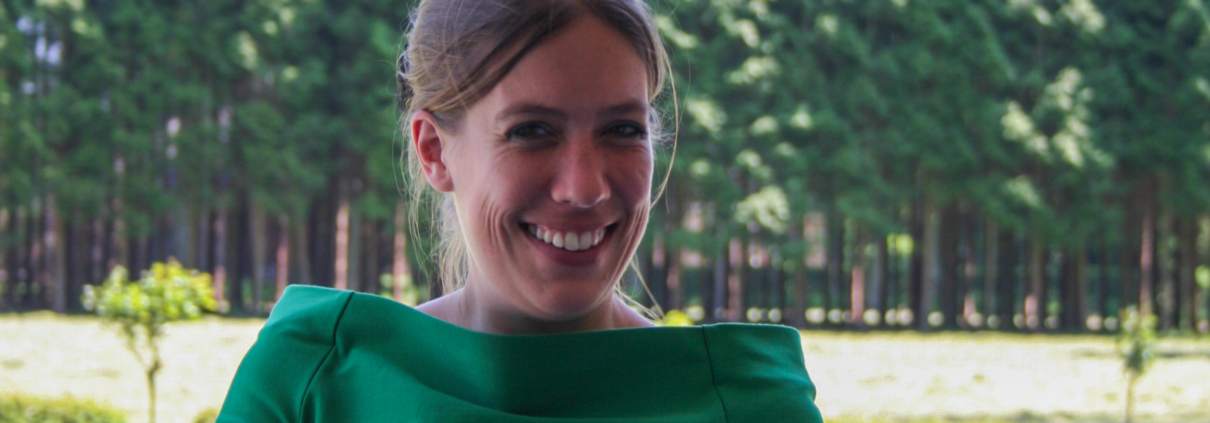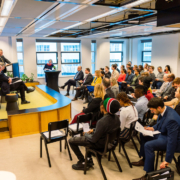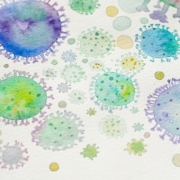Claire Barnhoorn, Founder & CEO of Solvoz
MEET CLAIRE
It’s 1986, the great Ethiopian famine at its peak, when the 6-year-old starry-eyed Claire ran across her school grounds trying to raise money for two children whom she saw on a poster in her classroom. The two kids carrying the fictious names Ethy and Jopy (at aged six Claire missed the point it was the name of the country, not of the boys), both with those distinctive hungry round bellies sparked her to think: “I was going to raise money for each round, and I thought that I could solve the problem”.
Solving problems is part and parcel of Claire’s mission to make an impact, change and disrupt to enable responsible procurement and innovation in aid. Claire’s story is marked by powerful milestones, each decade carrying its own significance on her journey to found Solvoz.
CLAIRE’S STORY
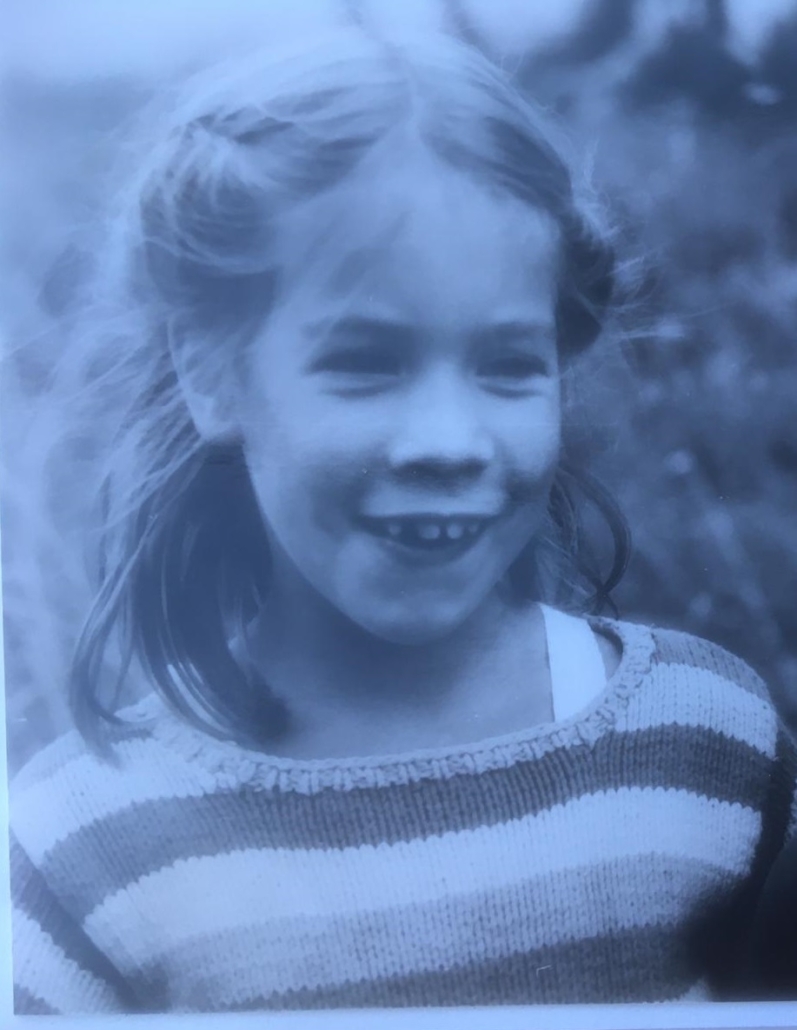
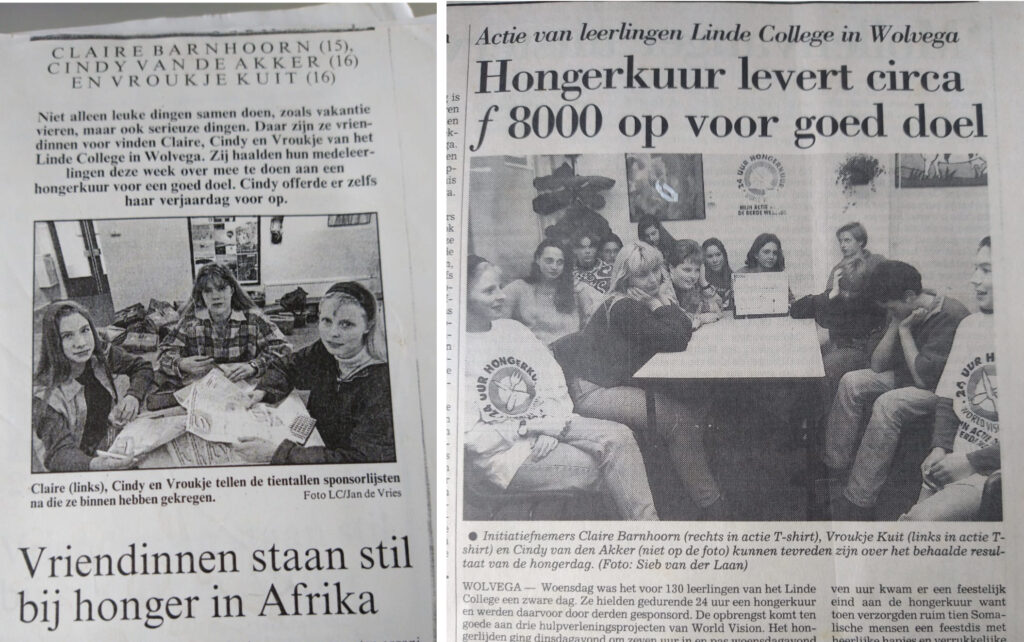
Changing school systems at the age of 9 allowed her to think differently, sparked her ever-critical mind and led her to discover more about the world’s food problem and at the same time cemented a dream to study Tropical Agriculture (which she eventually did). By the age of 12 Claire organised a 24-hour hunger strike for World Vision each year, joined one of their programmes in Mauritania by the time she turned 16. At 18, studying Tropical Agriculture at Wageningen University, she followed the same uninterrupted course of critical thought and, eventually, a lecture by Thea Hilhorst introduced Claire to the humanitarian principles and led her to “become dedicated humanitarian assistance from that day on”. Ever since, she wanted to work with Doctors Without Borders “because their thinking is really what I think is right now and how we should judge where and how to operate”. In the years thereafter, Claire fell ill yet finished her studies in International Development. Her thesis on Diaspora Identities amongst Tibetan Refugees and Youth tied in with youth work and organising the Bevrijdingsfestival in Wageningen reaffirm her deep concern for humanity as a whole.
During a mission in the Democratic Republic of Congo, working as a project coordinator for Doctors Without Borders (MSF), living her dream, Claire’s teary eyes opened: One day out in a car performing malnutrition screenings she thought that she “was collecting baseline data – but wasn’t. And that’s when my big change came from operational level to data-driven technology. It couldn’t say anything on the state of severity: Is it getting worse, less, or better? Is it returning?”. It was at that moment when it occurred to her that “we humanitarians need to be more responsible with how we’re dealing with our data”. On said day, the idea for her new mission was born: Aiming to bridge the gap between the field’s needs and field reality, to achieve a contextual fit and translating between “the techies and data guys” and field staff (or as Claire calls it “the human HDMI USB cable”).
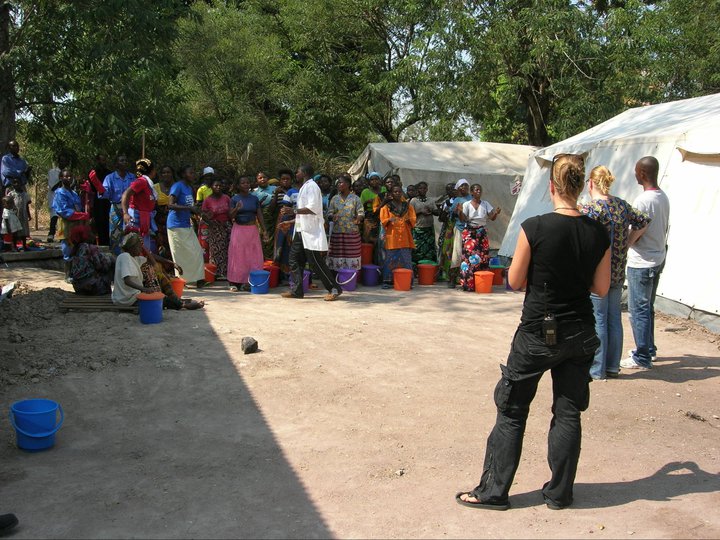
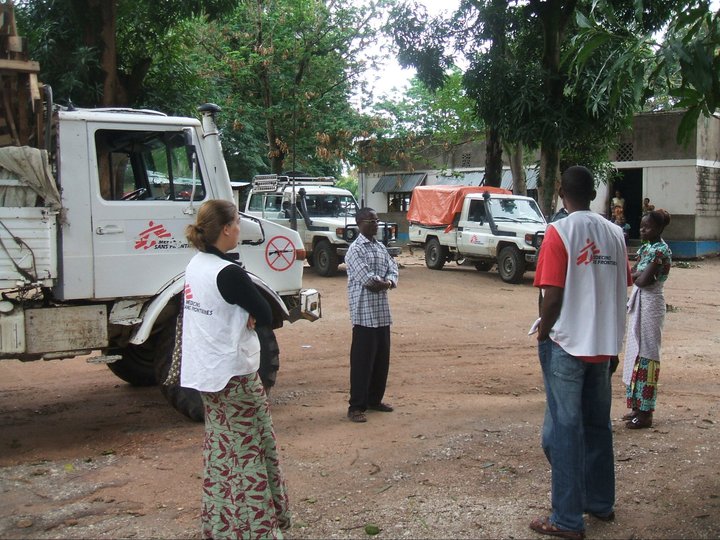
WHAT IS CLAIRE UP TO?
Years later, what started off as AidMetrics, an open access catalog for data driven innovation, turned into AidInnov and eventually Claire’s capstone: Solvoz.
“Innovation is treated as a standalone pillar. It’s hardly merged into procurement or into operations, but if you bring it into a procurement workflow, you present vis-a-vis existing solutions based on the use case, then you create a market.”
The two entities, Solvoz and the Solvoz foundation, provide a workflow and collaboration platform for procurement and tenders in the aid sector, including an open access catalogue of solutions, products, services, and suppliers in the sector. The foundation is working with multiple parties who are providing information to the database and share knowledge, be it NGOs, relevant providers of products and services, or product experts: “We took the golden standards, and operationalize those in layman language”. The database is a necessary condition to facilitate the various actors in the international aid sector in a more effective and efficient use of funds.
Claire’s passion for solving problems translates into Solvoz’ unique approach in its ability to launch a procurement procedure or search from scratch based on needs or problem analysis, assuring needs-based solutions with a contextual fit. (You can find a one minute explainer video here.)
“Solvoz is like the little angel on the shoulder, that mystical advisor, telling you exactly what you need based on expert knowledge, and this angel on the other shoulder supports you with a procurement workflow.”
CLAIRE AND THE HUB
Covid impacted both the scaling of Solvoz and Claire’s experience with the Humanity Hub. While the first prototype was released in the first week of lockdown 2020, laying bare the possibility to scale, provide value, and support countries in the Covid response – Claire has not been able to be around the Hub much. Having been a member since the first days as an individual while still doing consultancy, Claire only joined again after Solvoz was a registered business.
Regardless, knowledge exchange sits at the heart of both the Hub and Solvoz and she looks forward to being more visible again. Claire is now looking the next handshake (or: elbow bump for the time being) to support and scale-up funding for the Solvoz ecosystem – to provide support to organisations in finding the right solution, facilitate procurement processes, to open up knowledge domains, and finally, any advice on communication to get the Solvoz story out.
“If there’s anyone who’d like to start using the platform: We are up and running.”
Many thanks, Claire, for taking the time to tell us your about your journey. If you’d like to get in touch with Claire, don’t hesitate to reach out to her via Slack or LinkedIn, and make sure to follow Solvoz on Twitter!

